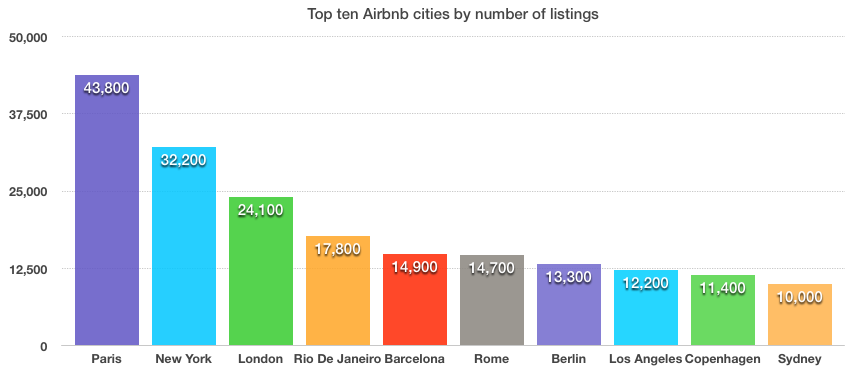Introduction:
Airbnb stands out as one of the most disruptive companies in the travel and hospitality industry. At its core, Airbnb connects two sets of people—those searching for a place to stay and those willing to rent out their available space. Without owning any physical property, Airbnb has become the world’s largest accommodation provider, creating a new standard of convenience and accessibility in the travel sector. For travelers, it eliminates the barriers of finding affordable and unique places to stay near their desired destinations, while for property owners, it offers a simple way to generate income by monetizing unused space.
The company’s success story is not just about scale but also about its distinctive business model. As of November 11, 2022, Airbnb was valued at $70.39 billion, reflecting its extraordinary journey from a small startup idea to one of the most valuable technology-driven companies globally. This valuation highlights how Airbnb has redefined travel and transformed ordinary homeowners into micro-entrepreneurs. By continuously innovating—whether through special programs for hosts, curated experiences, or safety measures—Airbnb ensures it remains relevant and appealing to its community of millions of users.
The Airbnb case study demonstrates how identifying unmet market needs can lead to exponential growth. By reshaping the traditional lodging model and tapping into the power of community-driven trust, Airbnb has established itself as a pioneer in the sharing economy, turning everyday people into service providers and reshaping the future of travel.
What is Airbnb & Its Brief History
The story of Airbnb began in 2008, born out of necessity when three friends—Joe Gebbia, Brian Chesky, and Nate Blecharczyk—struggled to pay rent in San Francisco. During a design conference in the city, they came up with a creative idea: rent out airbeds in their apartment and provide breakfast to attendees who couldn’t find hotel rooms. They launched a simple website called airbedandbreakfast.com, offering this service to three initial guests for $80 per night each. This humble experiment planted the seeds of what would later become a global brand.
Their early efforts expanded beyond just conference-goers. They briefly branded the platform as Airbed and Conferences United States, targeting travelers attending major events. However, they quickly realized that their idea had universal potential—people everywhere were looking for short-term, affordable, and flexible accommodation options, not just during conferences.
Interestingly, in 2008, the founders also experimented with creative funding. They produced and sold novelty cereal boxes named “Obama O’s” and “Cap’n McCain” during the U.S. presidential elections, raising about $30,000. The profits from this quirky project were reinvested into growing Airbnb, showcasing the founders’ resourcefulness and determination.
By 2009, the company joined Y Combinator, a prestigious startup accelerator, which provided mentorship, resources, and initial funding. Soon after, the platform was officially rebranded as Airbnb. With early investment from Sequoia Capital, the founders doubled down on growth by personally meeting hosts, building trust, and ensuring the platform felt like a true community rather than just a marketplace.
By 2014, Airbnb had disrupted the travel industry so significantly that it was recognized as “Company of the Year.” Later that same year, Airbnb celebrated its one millionth listing—an extraordinary milestone for a business that started with three airbeds in a living room. By 2016, the platform had tripled its listings and hosted over 150 million guests globally. Today, Airbnb operates in more than 191 countries and 65,000 cities, making it a symbol of the modern sharing economy.
Hosts
For hosts, Airbnb provides an easy and flexible entry into hospitality. Anyone with extra space can list their property by creating a profile, uploading photographs, writing descriptions, and setting their own pricing. To help hosts attract more bookings, Airbnb even offers free professional photography services, which has proven to significantly increase visibility and appeal. Many hosts use these tools to present their properties as attractive, professional, and trustworthy options for travelers.
Hosts also control their availability, set house rules, and decide whether to accept bookings automatically or manually confirm within 24 hours. This flexibility makes the platform suitable for both occasional hosts and full-time property managers. To further support hosts, Airbnb provides a $1 million Host Guarantee that protects against accidental damages, along with Host Protection Insurance covering liability in cases of injury or property damage. Additionally, Airbnb’s 24/7 Trust and Safety team ensures hosts always have support whenever issues arise, fostering a sense of confidence and reliability in the hosting process.
Guests
Guests also benefit from Airbnb’s user-friendly and secure process. To build trust, guests must create complete profiles with personal information and, ideally, a profile photo. This transparency helps hosts feel more comfortable when accepting bookings. The stronger the guest profile, the smoother the trust-building process between both parties.
When searching, guests can filter listings by location, dates, property type (entire home, private room, or shared room), budget, and amenities. The platform’s robust filtering system allows travelers to find accommodations that match their exact preferences, whether they’re seeking luxury villas, budget rooms, or unique stays like castles and yurts. Reviews and ratings further guide guest decisions, ensuring that experiences are safe, authentic, and enjoyable.

Airbnb in 2016
By 2016, Airbnb had grown beyond being just a platform for cool places to stay. It began targeting new customer groups and expanding its ecosystem of services. One of the key areas of growth was catering to business travelers, while also experimenting with lifestyle-oriented offerings like Airbnb Experiences and Airbnb Places. These expansions helped diversify its services and strengthen its presence as not just a lodging provider, but a full-fledged travel companion.
Business Travel
Recognizing the needs of corporate clients, Airbnb introduced specialized services for business travel. Companies could now book and manage employee accommodations through Airbnb, gaining access to unique stays while still maintaining professional standards. To qualify for business travel status, hosts had to meet strict criteria such as a 90% response rate, high cleanliness ratings, and essential amenities like Wi-Fi, smoke detectors, and self-check-in options.
These measures ensured reliability for companies while still providing employees with more personalized and comfortable stays compared to hotels. By July 2016, around 10% of all Airbnb bookings were attributed to business travel, showcasing the company’s success in tapping into this lucrative market segment.
Airbnb Experiences
In the same year, Airbnb launched “Airbnb Experiences,” an initiative that allowed hosts to go beyond offering lodging by curating activities for guests. These experiences included guided tours, cooking classes, workshops, and cultural exchanges—essentially connecting travelers with local communities in deeper and more meaningful ways. For non-profit organizations, Airbnb waived its service fees, allowing them to retain 100% of the earnings. By the end of 2016, Experiences had launched in 12 cities, with plans to expand to 50 cities by 2017.
Airbnb Places
To further enrich guest travel, Airbnb introduced Airbnb Places, a feature where hosts could create personalized guidebooks recommending local attractions, restaurants, and hidden gems. These guides offered guests insider knowledge, helping them avoid tourist traps and experience destinations like locals. Through a partnership with Detour, Airbnb also provided free Audio Walks, allowing guests to enjoy narrated, self-guided tours. This initiative reinforced Airbnb’s vision of making travel more authentic and connected to local culture.

Airbnb business model
At its core, Airbnb operates on an aggregator business model. Instead of owning inventory like hotels, it brings together property owners (suppliers) and travelers (consumers) under one trusted platform. This model allows Airbnb to focus on scaling its community and ensuring quality without the burden of property ownership.
Airbnb enters agreements with hosts, ensuring standardized pricing, consistent service quality, and accountability. This system has allowed the platform to grow rapidly while maintaining user trust. The concept is simple but powerful: connect people who have space with those who need it, and monetize the interaction. Unlike traditional hospitality, which requires substantial capital investment, Airbnb thrives by leveraging existing resources in the community.
What truly sets Airbnb apart is its emphasis on selling not just a room, but an entire experience. For many travelers, staying in an Airbnb means enjoying a home-like environment, connecting with locals, and often spending less than they would at a hotel. Over time, this human-centered approach has become the brand’s biggest strength.
To maintain trust, Airbnb uses detailed guest and host profiles, a transparent review system, and professional photography services. It even employs a global network of freelance photographers who capture high-quality images of listings to make them stand out. These small touches elevate the platform’s credibility and enhance the booking experience for users worldwide.






















